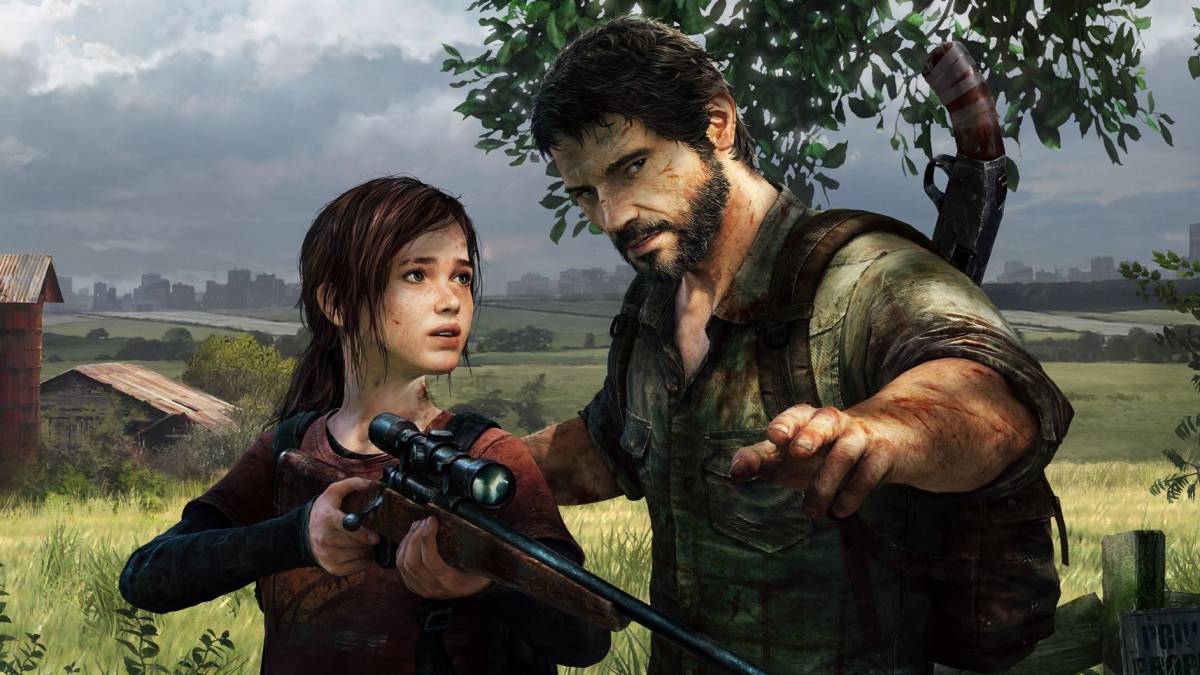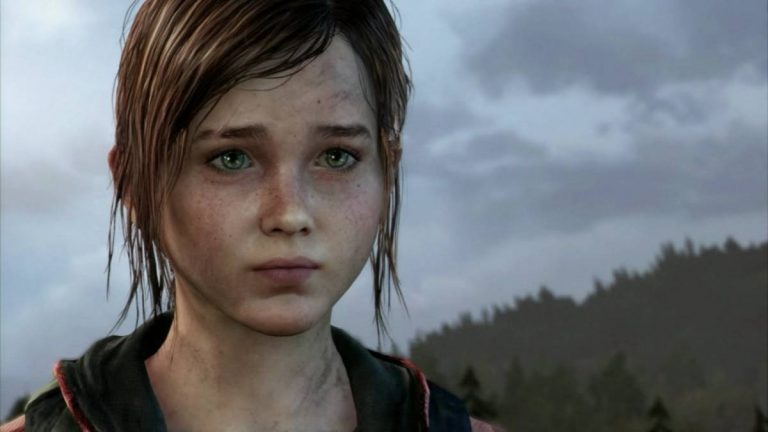“The idea that video games have something important to say or something of value to contribute is arrant nonsense.”
I overheard this recently whilst perusing the aisles of my local video game retailer and it stayed with me long after. The world has always been a topsy-turvy sort of a place but there’s no denying things are reaching a crescendo and the temptation is to believe that games exist in a vacuum as an isolated means of escapism, specifically designed to take you out of the world, not confront it. This is demonstrably not the case, indeed I would like to make the argument that games may just be part of the answer to some of the most seemingly intractable and concerning issues of our time.
First we need some context. The world in 2017 is a very scary place. Not in a ‘Sum Of All Fears/everything is going to explode’ sort of a way but the small and persistent eroding of personal freedoms, deteriorating societal relations and rolling back of moral groundwork sort of a way. A great many people are very concerned that we are sleep walking our way toward a society that embraces fear, encourages intolerance and promotes mistrust. This evil is particularly vicious precisely because of its subtlety, its ability to hide amongst the debate and the conspiracies. It’s a kind of creeping malevolence that is borne from genuine concern and legitimate grievance. Whatever your political beliefs, there’s no denying the deep divides that exist in our modern patchwork society.
Currently it’s basically the opening credits to every movie set in a dystopian future. You know the kind, where it starts with a series of news media intros cut together that serve in place of the narrator:
Coming up at 11; Food prices continue to soar – Riots in the streets – Unrest in the Middle East – Mad demagogue elected President of the United States.

So we are confronted with a reality that may inspire fear and anxiety amongst many. To those people I have only one comfort to offer; think about all the amazing cultural artefacts that came out of the other turbulent periods in human history that helped ease the pain. The uncertainty of post-war Europe gave birth to modern rock music and French New Wave cinema. The modern era that took root in the late 70s and early 80s with all its frightening technology and rapid societal change offered us the best of Bruce Springsteen, Grandmaster Flash and The Sex Pistols as well as ground-breaking films such as Raging Bull and Blade Runner. My point is not to trivialise those very real and momentous circumstances but simply to offer some hope that if we are indeed living through a very pivotal moment in human history, then the precedent is there that we can expect some truly fantastic art as a result.
Often maligned as juvenile, inconsequential and meaningless; video games are the errant child of the culture industry. Perceived as obsessed with violence, sex and power fantasies, video games are still not taken seriously as an art form. I believe the time has come for that to change and games can do this by seizing the opportunity to address the core issues of our troubled times. At times of real insecurity there is often a tendency for a society to close ranks and drift toward uniformity. The idea being that consolidating the many is a position of strength from which to face the uncertain world. The issue here is the inherent focus on ‘the many’ as a kind of homogenous blob. Deviation from this norm undermines the majority and so the social landscape threatens to morph into one of hate, misunderstanding and dread where the individual is threatened on the very basis of what makes them unique.
It is this trend that I believe video games are suitably equipped to help reverse. Video games and their narrative structures are so well placed to tackle the idea of what makes us human precisely because they ask us to take on the mantle of someone else. Even if they are the type of game where you create a version of yourself, it is still asking whether you wish the craft a fair reflection or an imagined likeness stemming from arrogance or insecurity. Either way, you are tackling the idea of identity and this could not be more relevant in 2017.
There are a handful of examples that have touched on the fringes of this issue with varying levels of success. The Deux Ex series has recently focused on exploring the ideas underpinning our humanity and what happens when you start to augment those concepts, and earlier installments examined complex political, financial and philosophical issues that were oddly prescient. In a world that requests adherence to the norm, Deux Ex challenged us to blur the lines. By confronting the player’s perception of acceptance and tolerance, Deus Ex was able to explore rather than directly inform. It did so by providing choices with consequences and this is a trick unique to video games. Conventional storytelling allows you to provide a glimpse of the future, whereas the narrative framework of video games allows for a multitude of possible scenarios. It is the player’s decision which is the most palatable and that has the potential to teach them something about who they are and the kind of person they want to be.
It is this sense of self-discovery that is also present in games like Journey where the experience is simple and personal by design but no less profound. A subtle story with translucent themes of endeavour, achievement and cooperation, Journey shows how even games without a sophisticated plot can still encourage the player to understand the world around them. It’s a game that asks the player to use their imagination, to piece a puzzle together and to envision a world beyond themselves and their place within it.
There is however one game in particular which I believe demonstrates the medium’s ability to tell important human stories in a sophisticated, nuanced fashion that could serve as the template going forward; Naughty Dog’s 2013 release The Last of Us. There is nothing especially original about its plot; a viral outbreak threatens all life on the planet. Society has collapsed and the people that did survive are huddled together, scraping by in highly-secure communities often run by authoritarian military-governments. Unremarkable fare, you may understandably suggest. Where this story excels is in its true depiction of humanity. Not in a grandiose, high-concept kind of a way, but by exploring the relationship between the practical yet exhausted Joel and the more idealistic and sincere Ellie. Joel is introduced to the player in disastrous and decidedly heart-breaking circumstances. However the sentiment would be lost among the fictitious circumstances were it not for the strength of how Joel is portrayed. Straight from the start he is not some invulnerable demi-god capable of amazing feats of heroics, he is just a person who has everything and everyone he loves taken from him. What is left is a complex combination of broken cynicism and pragmatic survival instincts. Yet this dimension is offset by a dim but visible hope for redemption and he reluctantly accepts that Ellie might just be that salvation. Ellie, by contrast, believes in the world that is left, the people that inhabit it and indeed, in Joel. She is smart, brave and incredibly patient. She tolerates Joel’s laboured attitude toward life and over time learns to understand what happened to him. Her empathy is powerfully exhibited throughout and their relationship is strengthened as a result, as well as their chances for survival.

So in The Last of Us we have a truly modern parable for the power of compassion, of relationships and of working together to overcome what at first seem like overwhelming odds. It is a tragic tale of two separate people thrown together by fate and catastrophic circumstance where their only option is to put aside their differences, to step out of their own worlds and see each other’s point of view. Of course there are limitations on what the game can achieve, (it’s still a collection of art assets and mechanics after all) but the way the surroundings force Joel and Ellie to work together dovetails perfectly with their relationship that grows, struggles and ultimately blossoms over time. It is a beautifully constructed narrative, founded on emotive yet considered writing with just the right number of emotional sucker punches to stay the right side of melancholy.
The moments when the game does wallow in hopelessness are punctuated with pockets of sanguine humour and heartfelt optimism. There is a part where Ellie and Joel partner up to cross a rushing river and on doing so, Ellie holds up her hand for a high five. As Joel you have the chance to ignore it if you wish but having been through so much with her at this point, the average player will find it extremely difficult to pass up this profound expression of friendship that is encapsulated in an otherwise trivial gesture. It is the interactive moments like this, unique to the medium of games, and the combination of the weighty and the trifling ensconced among the science-fiction dystopian setting that give The Last of Us a little bit of everything but with two very human, very real stories at its core.
At the end of the day, The Last of Us is “just a video game,” but its themes are extremely relevant to the world today. If the 21st century is the era of the self, then perhaps we could all do with a lesson in what it means to step outside of the limits of our own limited perspective. Video games are uniquely placed to accomplish this feat and now is the time to step up and join the grown-ups. For too long have they been the last refuge of the adolescent when the means are there to accomplish so much more. Why not force the player to confront what it means to suffer for a shared belief, whatever that belief may be. Show them a world they’ve never experienced, not in some far flung galaxy but one that exists on the other side of the street. These human stories exist and perhaps if we understood them a bit more we could hold back the tide of persecution and vilification that now seems so prevalent.
The examples of games that have challenged convention are few and far between. The mainstream games industry needs to catch up as quickly as possible to bring these issues to the fore; to forego this opportunity would be a criminal waste.
Some of the coverage you find on Cultured Vultures contains affiliate links, which provide us with small commissions based on purchases made from visiting our site. We cover gaming news, movie reviews, wrestling and much more.



